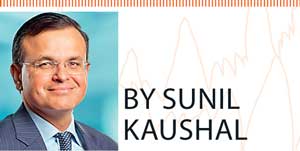26 Aug 2016 - {{hitsCtrl.values.hits}}
 Weaker global outlook and the impact of Brexit have created uncertainty around growth prospects. The impact weighs heavy on world economic outlook with the International Monetary Fund (IMF) predicting advanced economies will grow by only 0.2 percent from 1.9 percent to 2.1 percent and hold steady in 2017. Against this backdrop of lethargic economic performance, some developing economies still show strong growth potential.
Weaker global outlook and the impact of Brexit have created uncertainty around growth prospects. The impact weighs heavy on world economic outlook with the International Monetary Fund (IMF) predicting advanced economies will grow by only 0.2 percent from 1.9 percent to 2.1 percent and hold steady in 2017. Against this backdrop of lethargic economic performance, some developing economies still show strong growth potential.
Sub-Saharan Africa is expected to post growth of 4.1 percent in 2017 and 5.2 percent in 2018, demonstrating resilience in the face of the global economic slowdown and subdued commodity prices. Africa’s structural growth drivers, which include its attractive demographics, urbanisation and rise in consumerism, remain intact.
The rising middle-class with increasing purchasing capacity and growing consumption are attracting investors’ attention in markets like South Africa, Nigeria and Kenya. The growth of FinTech firms and online lenders in the region is also helping to support the middle-class segment by enabling better access to credit.
The power sector is another example of attractive opportunity in the continent - Africa has about 13 percent of the world’s population, but half of this population does not have access to electricity. In comparison, over 80 percent of the Indian population has access to electricity.
African economies, which are currently performing well, include Côte d’Ivoire, Tanzania, Kenya, Senegal and Ethiopia. Senegal, for example, is outperforming with a growth rate of c.6.5 percent, the highest it has achieved in over a decade. These economies have in many ways benefitted from lower energy and commodity prices while on the other hand, the larger economies of South Africa, Nigeria and Angola have been severely impacted by the slump in commodity prices. Their medium-term prospects however remain good. Given this mixed picture, how will Africa continue to achieve its maximum growth potential?
The West and Western multilaterals have historically played a significant role in Africa’s growth with the European Union (EU) being its biggest trading partner. But the relationship between Asia and Africa has grown exponentially over the last decade. China has materially invested into Africa. Japan too has shown its interest in ramping up African investments and will be hosting the Tokyo International Conference on African Development for the first time in the African continent, focusing on ways to improve Africa’s health system. Opportunities for other Asian countries to participate in and support Africa’s growth will continue to evolve.
In the wake of European growth uncertainties following the Brexit decision, this trade partnership diversification and closer ties with Asia, could prove to be prudent in the long-term and Africa is likely to look increasingly to the East for investment and expertise.
Singapore’s role in Asia-Africa partnerships
China’s One Belt, One Road initiative is designed to promote the connectivity of the Asian, European and African continents and their seas to enhance trade linkage. As one of Asia’s leading international financial services centres, this initiative lays the foundations for Singapore to play a central role, potentially becoming the finance, shipping and aviation hub for South-South trade. Singapore’s world-class expertise in consumer facing industries such as airlines, education and healthcare can pave way for a flow of knowhow and skilled labour. Singapore’s strong brand name and excellent track record in city, infrastructure and industrial planning as well as education and manufacturing can spur more business collaboration between the regions. Already through the Singapore Cooperation Programme, the country has been active in sharing its development experience with Africa, playing an important role in providing the technical assistance needed for sustainable economic development.
Taking a cue from the evolution of cross-border investment interest in Africa, Singaporean companies should ideally pick a few sectors and use the government-to-government (G2G) platform to create an enabling environment. As the international framework between Singapore and African jurisdictions mature into an advanced stage, investments in African infrastructure will increase.
Forging economic partnerships at Africa-Singapore Business Forum
While the long-term investment potential of Africa looks promising, the near-term landscape for Africa-Asia trade presents many challenges. Africa’s diverse markets remain poorly understood: there are 2,000 dialects and 54 countries all with different consumer needs to consider. Africa-Asia trade patterns also reveal the trade imbalance where investment flow is in one direction – from Asia to Africa. In order to achieve sustainable economic benefits, there is a need for strategic commitment and key partnerships. There must be new determination to turn around the varying levels of conditions ranging from infrastructure to red-tape challenges that persist for growth to be sustainable.
Investing in Africa presents diverse challenges and requires strategic commitment and local insight to ensure success. The idiosyncrasies, opportunities and challenges of Asia-Africa trade and investment were discussed at the Africa-Singapore Business Forum on August 24 and 25, 2016, where Standard Chartered was a Platinum sponsor of the conference.
(Sunil Kaushal is Regional CEO Africa and Middle East at Standard Chartered Bank)
10 Jan 2025 1 hours ago
10 Jan 2025 1 hours ago
10 Jan 2025 3 hours ago
10 Jan 2025 3 hours ago
10 Jan 2025 3 hours ago